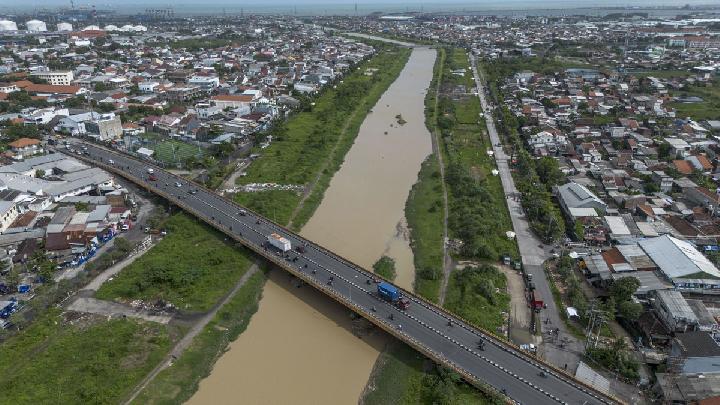Ross Desmond’s brandishing of the flamethrower on sections of the Celtic support during the Absolutely Gobsmacking Madness of the truncated — and totally tonto — Celtic AGM was a declaration of war on the home front all right.
What was missed amid the maelstrom, though, was what felt like a waving of the white flag in Europe from the very top of the club. An admission, almost, that the spectacular failure on that front over the last decade or more has more or less been accepted. Or, at least, is viewed as coming with mitigating circumstances.
It all adds up to an institution that looks like it is beginning to come apart at the seams with no clear picture on strategy, wider ambitions or any kind of plan to bring a deeply fractured fanbase back together as one.
Every time they make a public statement — and there have been some absolute belters, to be fair — the feeling the place is spinning off its axis heightens. There is also the small matter, barely discussed in the past few days, of the team — second in the table behind Hearts, remember — still not having a permanent manager in place.
It seems incredible given the advantages Celtic enjoy in terms of finance and infrastructure in Scotland — plus the fact they’ve won 13 out of the last 14 titles — that they find themselves engulfed in this kind of civil war.
Let’s be clear about one thing from the outset, mind. The yobbery witnessed at Friday’s shareholder meeting in the Kerrydale Suite at Parkhead was unnecessary and unacceptable, no matter how high feelings may be running over the way the Scottish champions happen to be operating.
Ralston and Trusty react as Midtjylland go 3-0 up before half-time in recent Europa League tie
Angry shareholders hold up red cards to protest at the board before Celtic agm was abandoned
Dermot Desmond is Celtic's major shareholder but left his son, Ross, to take supporters to task
Supporters have every right to be unhappy with the way the summer transfer window unfolded — ending in a humiliating exit at the hands of Kairat Almaty in the qualifiers for the Champions League — and furious at the dreadful standards of communication they have been subjected to by the board of directors since.
There was that nutty statement in September, fired out late on a Saturday which had already seen one newspaper carry a story on a senior source at the club briefing against then manager Brendan Rodgers, in which the lack of meaningful action in the market was blamed on everything from financial Fair Play to punters writing and talking about transfer targets on the internet. It was an insane, misguided act of pouring petrol on the flames.
Then, there was CEO Michael Nicholson, underwhelming as ever, leading an October meeting with The Celtic Fans Collective — a collection of fan groups and fan media organisations demanding clarity over their club’s direction of travel and change.
According to everything that came out of the pow-wow, Nicholson was insistent the football department was working as intended. That was, until Rodgers resigned just weeks later and major shareholder Dermot Desmond gunned him down in a hail of verbal bullets in an unprecedented character assassination on the official Celtic website.
His son Ross then going after sections of the support at the AGM — branding them ‘aggressive’, ‘irrational’ and ‘bullies’ — will be the final straw for many.
Yet, Celtic are in a mess of their own making. Bringing back Rodgers was irrational. Empowering ultra groups is irrational. The decidedly erratic way Celtic have been acting on all sorts of fronts since summer requires forensic questioning and analysis. The AGM offered an opportunity, albeit a limited one, to do that.
Holding up red cards, jeering, walking out and chanting ‘Sack The Board’, however, was entirely the wrong way to go about things.
That kind of stuff is OK to make a point in the stands on matchday. Essential, at times.
Ross Desmond read out a prepared speech which labelled some fans 'bullies' and 'irrational'
Martin O'Neill later reflected on a 'sad, sad morning' and stressed the need for unity
If you want to win an argument within the confines of a business meeting, though, the shouting has to be replaced with decorum, cool heads, planning and a strong case delivered in a coherent manner.
There have been allegations from unhappy fan groups that Celtic always planned to collapse the AGM. That seems fanciful, but, if it was the case, those punters in the room stormed right into the trap.
There would have been a chance on Friday to take Desmond, there representing his old man, to task over the things he had said, but that’s now gone. And there was plenty to take him to task over.
Celtic are doing a dreadful job of letting their fans and customers know they are being heard. All the way through this saga, the underlying message has been ‘sit down, shut up and know we’re right’.
It needs challenged. As does the way those in the club now appear to regard Celtic’s place in the wider scheme of things.
Be sure, this ought to be far more horrifying than these skirmishes with fan groups, which will surely settle in time. Most probably when the new manager starts winning trophies again.
Interim boss Martin O’Neill spoke recently about how important UEFA competition should be to Celtic. When Rodgers returned, the entire ill-fated, badly-conceived project was centred around re-establishing the side on the European stage. It was the whole point.
Now, just a couple of years on? The mind boggles. Nicholson told fans in October that he felt the club’s displays in Europe in recent years were ‘satisfactory’. They haven’t won a knockout tie in any tournament proper since 2004.
Desmond junior’s words on Friday, before he got round to pointing the blunderbuss at Joe Punter, only heightened concerns that the place is becoming ever less outward-looking.
‘Those who talk about the club not having kicked on in Europe since 2003 ignore the enormous change in the financial landscape of football in that period,’ he said. ‘It has created a gap which keeps growing and challenges any club playing in a smaller league.
‘Most supporters understand that. Of course, clubs can still punch above their financial weight and we should aspire to that, but if you swing and miss, you risk the very stability of the club and that would be profoundly irresponsible.’
No one has ever stated they believe Celtic should be challenging for the Champions League. Yes, the big clubs from the big leagues are operating on a different economic plane. However, the structure of European competition has the potential to change dramatically in years to come and it’s vitally important Scottish clubs do all they can to stay relevant.
When you are running wage bills north of £60million and making Rodgers the highest-paid boss in Celtic’s history, there must be an expectation to be competitive in Europe to a degree. And on a relatively consistent basis.
Celtic's Champions League exit at the hands of Kairat Almaty was the tipping point for many
In the last 12 years, Celtic have been knocked out of Champions League qualifying by Maribor, Malmo, Cluj, AEK Athens, Ferencvaros, Midtjylland and Kairat Almaty. They’ve been taken apart in other matches by Molde, Braga, a reserve team from Sparta Prague and Bodo/Glimt.
Their record, over the piece, is atrocious. An embarrassment. They should be looking at this season’s Europa League — and its hardly stellar cast list — as a tournament they can go far in, but you get the sense it has already been written off.
It’s shameful. It seems unthinkable Celtic won’t find a way to freshen things up and change behind the scenes in the near future. Fresh blood surely has to make it into the boardroom.
It’s the indication from those on high, though, that ambitions of succeeding beyond Scottish shores have to be tempered longer-term that should remain in the minds of Celtic supporters when the heat and dust of current conflicts has dissipated.
It isn’t close to being a key discussion point right now, but it should be going forward.

 3 months ago
77
3 months ago
77

















































